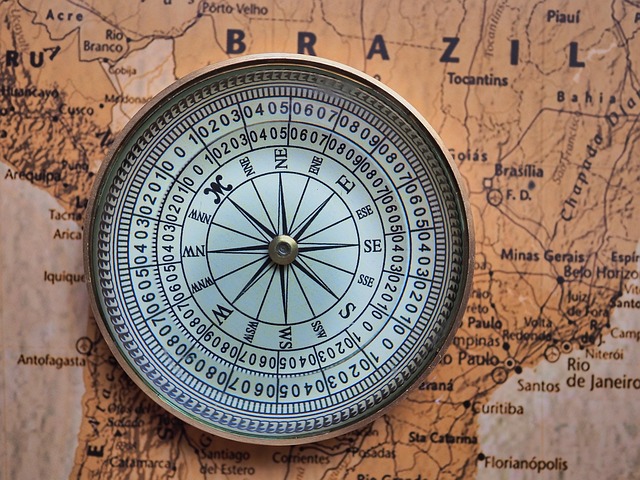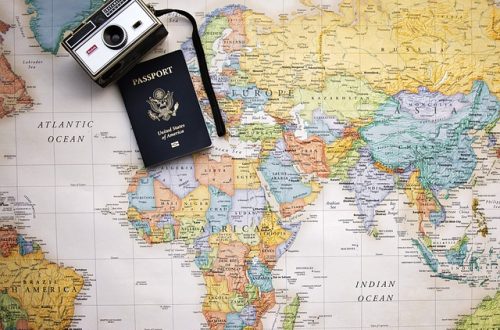
Why the Off-Grid Travel Lifestyle Appeals
The off-grid travel lifestyle has gained popularity among travelers seeking freedom, self-reliance, and a deeper connection with nature. Living off-grid while traveling allows you to escape the hustle of modern life, explore remote destinations, and experience adventure on your own terms.
This lifestyle is more than just disconnecting from technology. It involves planning, adaptability, and embracing simplicity. Many travelers are drawn to the off-grid travel lifestyle for the sense of independence it offers, as well as the opportunity to reduce their environmental footprint.
Planning for the Off-Grid Travel Lifestyle
Preparation is key to successfully embracing an off-grid travel lifestyle. Travelers need to consider accommodations, food, transportation, and emergency planning. Campsites, tiny homes, and eco-lodges are popular options that support self-sufficient travel.
Researching local laws and environmental regulations is also essential. The off-grid travel lifestyle often involves staying in remote areas, so understanding access permissions and respecting natural habitats ensures a safe and responsible journey.
Living Minimally on the Road
The off-grid travel lifestyle requires minimalism and strategic packing. Carrying essential gear, sustainable tools, and multipurpose items helps travelers maintain independence without being overburdened.
Essentials might include portable stoves, water filtration systems, solar chargers, and compact camping equipment. These items allow for self-sufficiency and enable travelers to navigate remote areas with confidence.
Connecting With Nature
One of the most rewarding aspects of the off-grid travel lifestyle is the connection with nature. Remote destinations provide opportunities to hike, kayak, and explore wilderness areas. Travelers can witness wildlife, enjoy star-filled skies, and experience a slower pace of life away from urban distractions.
This connection fosters mindfulness and an appreciation for the natural environment, making the off-grid travel lifestyle as much about personal growth as adventure.
Managing Food and Water
Sustaining yourself while living the off-grid travel lifestyle requires careful planning of food and water supplies. Stocking non-perishable foods, planning for local foraging or fishing, and understanding water purification techniques are vital skills.
These strategies help travelers maintain energy and health while exploring remote locations. Learning to manage resources efficiently is a key component of the off-grid travel lifestyle and ensures safety and independence.
Navigation and Orientation
Travelers embracing an off-grid travel lifestyle need strong navigation skills. Maps, compasses, and offline GPS devices are critical for moving through unfamiliar terrain. Observational skills, such as reading landmarks and understanding weather patterns, enhance safety.
The ability to navigate independently is both empowering and essential when exploring areas without traditional infrastructure. This aspect of the off-grid travel lifestyle emphasizes self-reliance and adventure.
Safety Considerations
Safety is a top priority in the off-grid travel lifestyle. Planning for emergencies, carrying first aid kits, and knowing local medical facilities are essential. Travelers must also understand environmental risks such as wildlife encounters, weather hazards, or difficult terrain.
Adopting proactive safety measures ensures that the off-grid travel lifestyle remains enjoyable and sustainable. Knowledge, preparation, and awareness are the foundation of a secure off-grid adventure.
Sustainable Practices
Sustainability is a cornerstone of the off-grid travel lifestyle. Travelers often focus on leaving no trace, reducing waste, and supporting eco-friendly accommodations. Using solar energy, conserving water, and minimizing environmental impact are practices that align with responsible off-grid travel.
Sustainable travel enhances the experience by fostering respect for nature and local communities. The off-grid travel lifestyle emphasizes harmony with the environment, creating meaningful and responsible adventures.
Social Connections and Community
While the off-grid travel lifestyle emphasizes independence, building connections with locals and other travelers remains important. Sharing experiences, exchanging tips, and participating in community activities enrich the journey.
Staying engaged with the community can provide support, insights, and friendships that enhance the off-grid travel lifestyle. These connections also offer safety and guidance in unfamiliar locations.
Incorporating Technology Wisely
Even in an off-grid travel lifestyle, selective use of technology can enhance safety and convenience. Solar-powered devices, satellite communication tools, and offline maps can assist without compromising independence.
Technology used responsibly supports navigation, emergency communication, and resource management. For travelers embracing minimal tech, combining traditional skills with modern tools creates a balanced off-grid travel lifestyle.
Budgeting for Off-Grid Adventures
Living the off-grid travel lifestyle does not mean high expenses. Budgeting effectively ensures you can sustain yourself while exploring remote locations. Prioritizing essential gear, local experiences, and resource-efficient practices keeps costs manageable.
Traveling slowly and staying longer in fewer locations reduces transportation costs and allows for deeper cultural and environmental immersion. Budget-conscious strategies complement the off-grid travel lifestyle, making it accessible for a wide range of travelers.
Experiencing Cultural Immersion
The off-grid travel lifestyle allows for authentic cultural immersion. Staying in remote villages, learning local traditions, and participating in community events provide experiences unavailable to mainstream tourism.
These interactions create meaningful memories and deepen understanding of local ways of life. Cultural engagement is a defining feature of the off-grid travel lifestyle, blending adventure with human connection.
Challenges of the Off-Grid Travel Lifestyle
While rewarding, the off-grid travel lifestyle comes with challenges. Limited access to services, potential isolation, and physical demands require resilience and adaptability. Travelers must be prepared to face unpredictable situations and solve problems independently.
Embracing challenges is part of the growth process inherent in the off-grid travel lifestyle. Overcoming obstacles enhances confidence and creates a deeper appreciation for simplicity and freedom.
Making the Most of the Off-Grid Travel Lifestyle
Living the off-grid travel lifestyle encourages exploration, mindfulness, and self-sufficiency. By planning carefully, embracing simplicity, and respecting local environments, travelers can create unforgettable adventures.
Combining off-grid experiences with planning tools and practical resources, such as Travel Checklist for 2025: What to Pack and Plan, ensures that journeys are both safe and enriching.
The off-grid travel lifestyle transforms travel into more than sightseeing. It becomes a holistic adventure that challenges the body, nurtures the mind, and fosters a deep connection with the world. Embracing this lifestyle opens doors to freedom, creativity, and a unique way of experiencing the planet.




